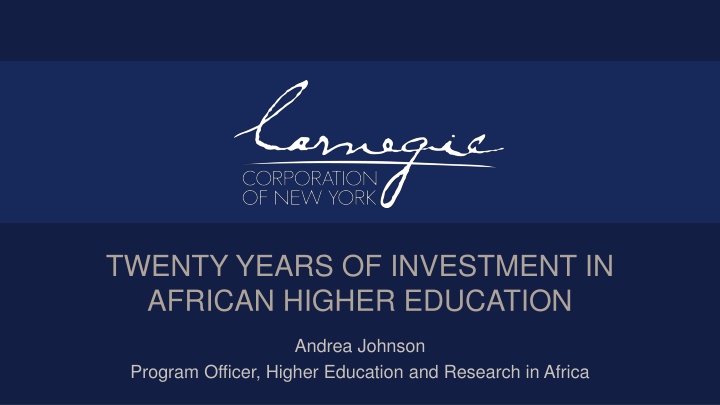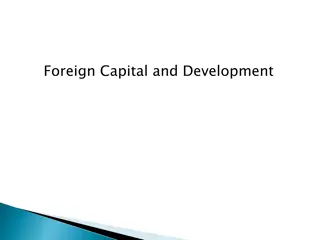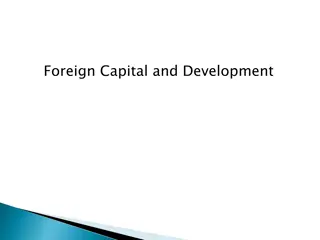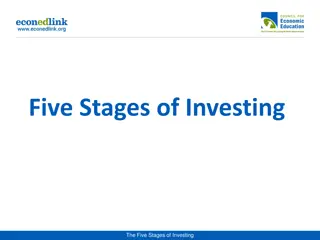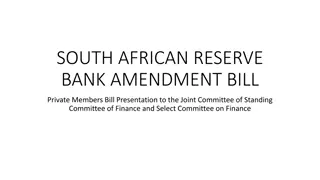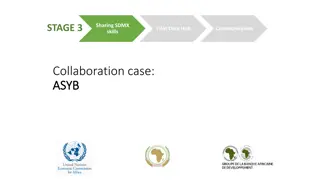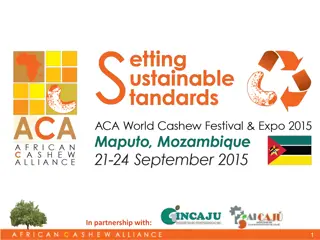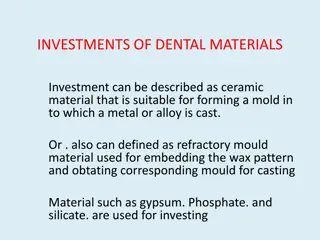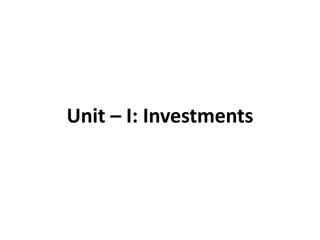Investments in African Higher Education: A 20-Year Journey
Andrea Johnson, as Program Officer for Higher Education and Research in Africa, highlights two decades of investment in African higher education. The initiatives include partnerships between universities, scholarships for women in STEM fields, and support for ICT advancements. The Partnership for Higher Education in Africa (PHEA) coordinated foundation support, with significant investments totaling $440 million over a decade. The focus shifted to developing the Next Generation of African Academics, with over $98.6 million invested to date in master's programs, fellowships, and postdoctoral awards.
Download Presentation

Please find below an Image/Link to download the presentation.
The content on the website is provided AS IS for your information and personal use only. It may not be sold, licensed, or shared on other websites without obtaining consent from the author.If you encounter any issues during the download, it is possible that the publisher has removed the file from their server.
You are allowed to download the files provided on this website for personal or commercial use, subject to the condition that they are used lawfully. All files are the property of their respective owners.
The content on the website is provided AS IS for your information and personal use only. It may not be sold, licensed, or shared on other websites without obtaining consent from the author.
E N D
Presentation Transcript
TWENTY YEARS OF INVESTMENT IN AFRICAN HIGHER EDUCATION Andrea Johnson Program Officer, Higher Education and Research in Africa
First Ten Years of Corporation Higher Education Investment In South Africa Partnerships between historically advantaged and historically disadvantaged universities University transformation (UCT, UKZN, Wits) Undergraduate scholarships for women in science and engineering In East and West Africa: Implementation of aspects of university strategic plans Gender equity Scholarships for women at the undergraduate level 2
The Partnership for Higher Education in Africa With the Partnership for Higher Education in Africa (PHEA), seven foundations convened to coordinate support for African higher education. Through PHEA, foundations supported: extensive work in information and communications technology (ICT) access to bandwidth e-learning initiatives 3
PHEA: Corporation Supported Universities Corporation Investment, 2000-2010 Table taken from Accomplishments of the Partnership for Higher Education in Africa, 2000- 2010, Susan Grant Lewis, Jonathon Friedman, John Schoneboom. 2010. Corporation support for capacity strengthening was spread across higher education institutions in Ghana, Nigeria, South Africa, Tanzania and Uganda. 4
Snapshot of Investments Corporation Investments Table taken from Accomplishments of the Partnership for Higher Education in Africa, 2000- 2010, Susan Grant Lewis, Jonathon Friedman, John Schoneboom. 2010. PHEA investments totaled $440 million over ten years. Carnegie Corporation committed $125.5 million, or roughly 29% of the PHEA total investment. 5
The Next Generation of African Academics In 2008, the Corporation began a new portfolio to develop and retaining the Next Generation of African Academics (NGAA). NGAA works through: Corporation Investments 2008- Present Institutional support Networks Fellowship programs Investments in this portfolio to date total ~$98.6 million, supporting: - 346 master s degrees - 581 doctoral fellowships, with 384 in the pipeline - 581 postdoctoral awards 6
Next Generation Fellows Fellows by Nationality, As of January 2019 Corporation investments are concentrated in partner countries of Uganda, Nigeria, South Africa, Tanzania and Ghana. 7
Institutional Partners The Corporation aims to strengthen postgraduate research, training and retention capacities of leading universities in South Africa, Ghana and Uganda. Support has enabled the universities to set up new, or strengthen existing programs, and to offer direct fellowship support and other opportunities to strengthen academic activities and productivity. The four institutional partners are: - University of Ghana - Makerere University - University of Cape Town - University of the Witwatersrand 8
Case Study: University of Ghana Academic Faculty Status of Departments Targeted for UG-Carnegie Support (2010/2018) 20 18 16 14 12 10 8 6 4 2 0 PHD 2010 PHD 2018 9
Networks The Corporation has launched, strengthened, and now supports several major networks in both the natural and social sciences on the continent: - Regional Initiative in Science and Education (RISE) - Consortium for Advanced Research Training in Africa (CARTA) - Regional Universities Forum for Capacity Building in Agriculture (RUFORUM) All of which, along with other investments in several African countries, are strengthening the academic pipeline by creating opportunities for advanced degrees and postgraduate advancements. 10
Case Study: Regional Initiative in Science & Education Since its inception in 2008, the Regional Initiative in Science and Education (RISE) has been supporting students to obtain postgraduate training through the various science and engineering networks comprising RISE. Corporation investments in RISE total $17.4 million, supporting: 93 master s, 95 PhD s and 9 postdocs supported. ***As of July 2017 11
Fellowship Programs Competitive fellowships also advance training and research through the direct provision of resources to African academics. As part of NGAA, the Corporation has invested in the following fellowship programs: - - - - - - - American Council for Learned Societies, African Humanities Program (AHP) Social Science Research Council Next Generation King s College, African Leadership Centre (ALC) International Foundation for Science University of Pretoria, Future Africa Institute University of Stellenbosch, African Doctoral Academy (ADA) Cambridge-Africa Partnership for Research Excellence (CAPREx) 12
Case Study: African Humanities Program The American Council of Learned Societies launched the African Humanities Program in 2008. Fellowships are awarded on a competitive basis to scholars working in universities in Ghana, Nigeria, South Africa, Tanzania, and Uganda. To date, AHP has awarded 107 dissertation fellowships and 299 postdoctoral fellowships across more than 60 African universities. 13
Support for Academic Diaspora Linkages The Diaspora Linkages initiative connects African universities with academics with the goal of strengthening training and research on the continent. 14
Support for African Higher Education Policy To advance higher education policies and practice, the Corporation supports efforts to generate and disseminate data-driven research and publications on Africa s higher education sector, and build capacity for research management. Support in this subprogram has centered on: - Research on higher education studies - Data for decision-making - Policy advocacy 15
Lessons from Experience African higher education is dominated by adaptive challenges more than technical challenges. Funding is necessary, but insufficient, to achieve the sectoral changes needed but funding constraints all too often dominate the discussion Sustainability of higher education interventions depends to a large extent on ownership, which in turn depends on congruence between university and funder priorities 16
